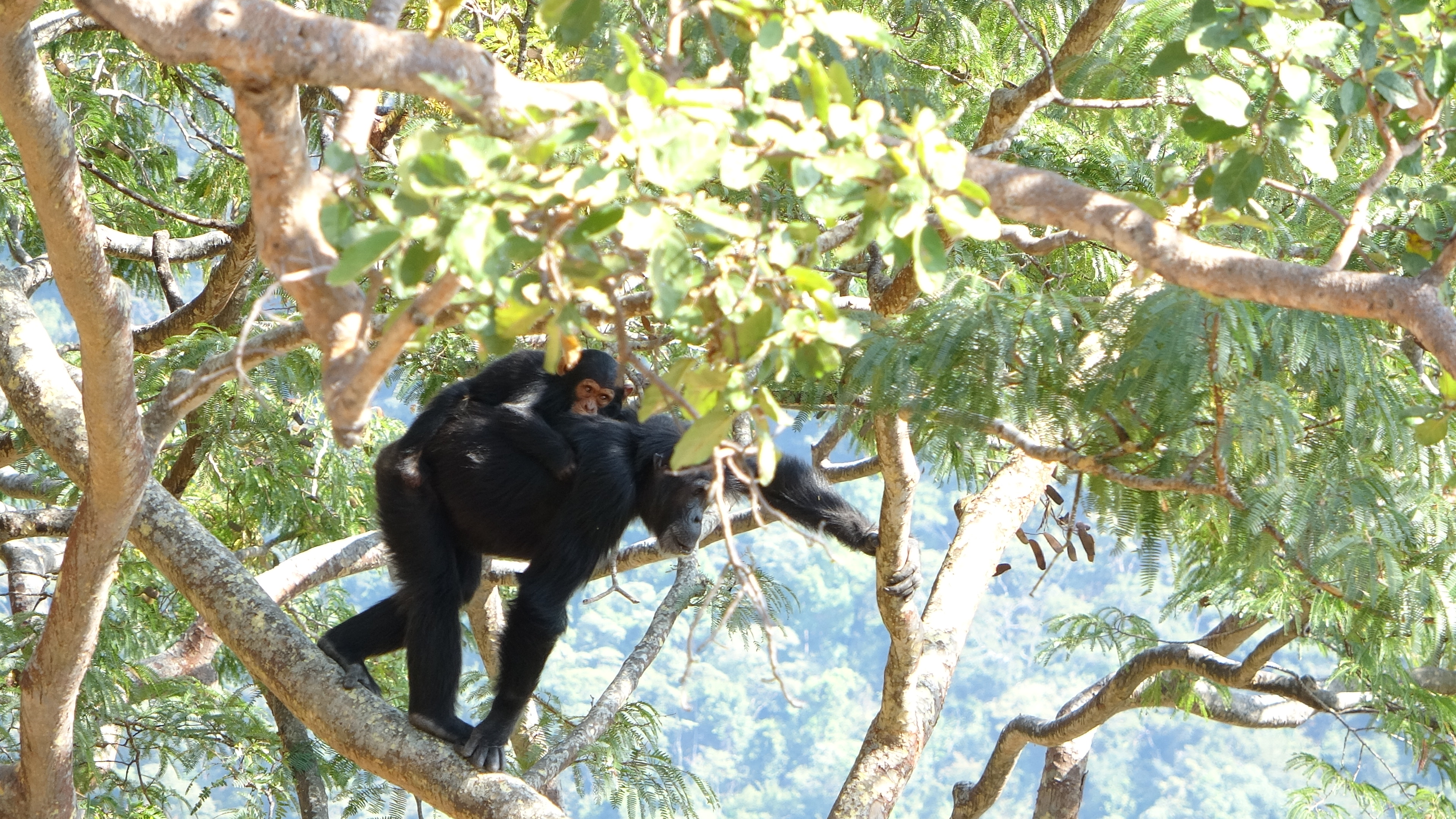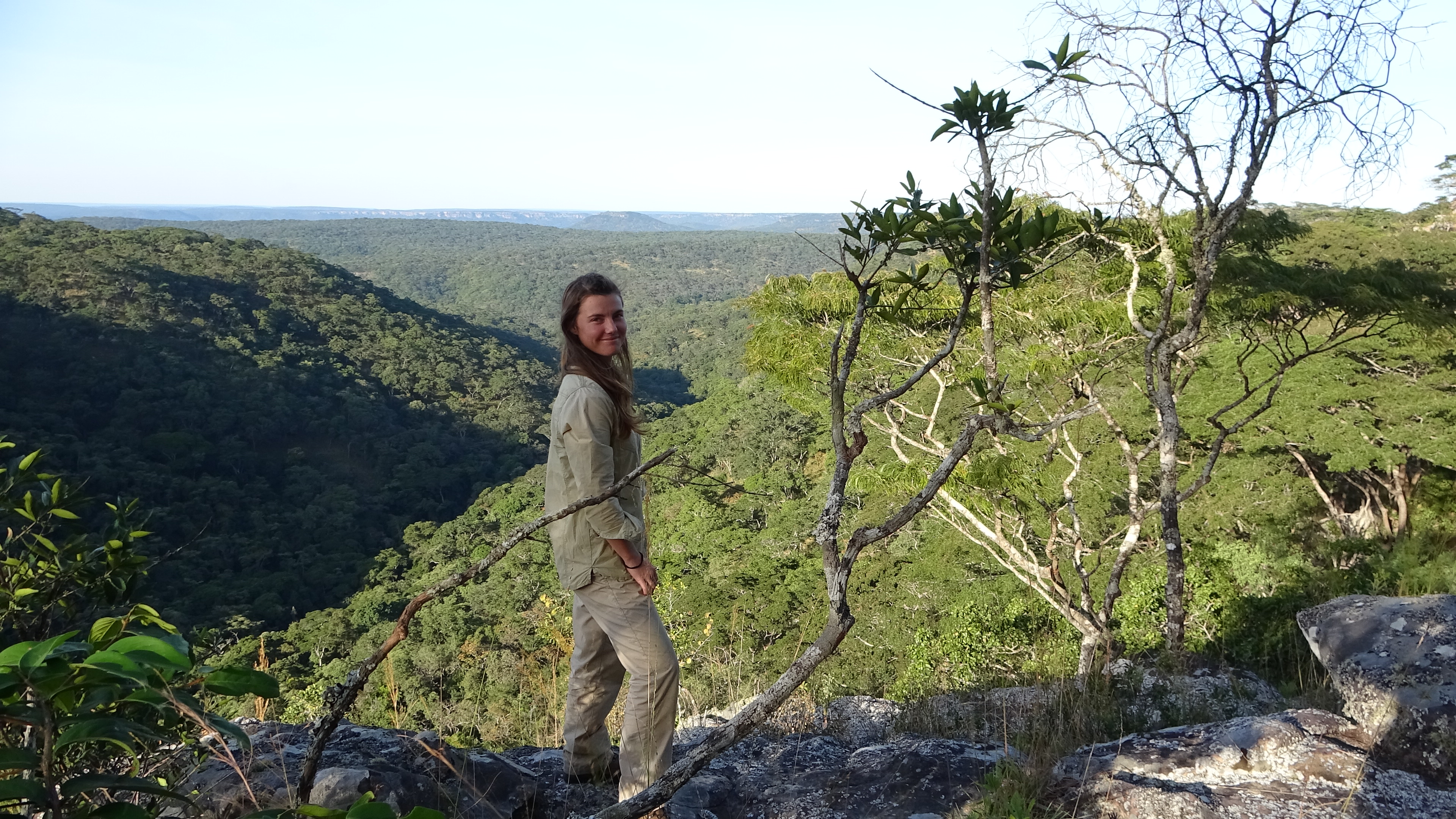Phd student Rhianna Drummond-Clarke has been awarded a Leakey Foundation Research Grant for her project entitled ‘Ecological drivers of bipedalism and arboreality in savanna-dwelling chimpanzees’.
Rhianna’s PhD research focuses on wild chimpanzee behavioural ecology and morphology in the savannah-mosaic site in Issa Valley, Tanzania – a habitat very similar to reconstructed palaeohabitats of our earliest fossil ancestors – to better understand the possible origins and evolution of bipedal walking in the human lineage. Following research conducted by Rhianna in 2020 as part of her PhD which showed Issa chimpanzees are more arboreal, and in particular use bipedalism more in the trees, than evolutionary hypotheses would predict (findings being published in Science Advances on 14th December), she now aims to investigate why, requiring additional information about their feeding and positional behaviours.
‘Congratulations to Rhianna on your Leakey Grant Fellowship to further explore the fascinating behaviour of these lovely creatures at Issa Valley, Tanzania. So well deserved!’ Professor Tracy Kivell tweeted.

‘Habitual bipedal walking is a defining feature of the human clade (hominins), distinguishing the earliest hominins from other apes since their split around 7 million years ago (Ma), but the evolutionary origins of our bipedal gait remain unknown. Whilst traditional hypotheses link the emergence of bipedalism to more time travelling on the ground as our earliest ancestors shifted from lush forest to a more arid and seasonal savannah habitat (with fewer trees), multiple lines of evidence suggest trees remained an important part of our ancestors’ ecological niche.’ Rhianna explained, ‘It remains unclear what role selective pressures within a changing, more arid environment played in the emergence and evolution of hominin bipedalism. In the absence of direct fossil evidence, extant chimpanzees that live in a savannah habitat analogous to that of early hominins (wooded, mosaic landscapes, hereafter “savannah-mosaic”) provide ideal models to test the “savannah effect” on ape (locomotor) behaviour.’
Thanks to the Leakey Foundation, Rhianna will return to the field in 2023 to collect necessary data on Issa chimpanzee feeding and positional behaviour. As part of the project Rhianna will employ and mentor a Tanzanian, female graduate (BSc) as a field assistant, thus providing important pathways into STEM for Tanzanian women. Together, they will also conduct ecological workshops at local schools, to facilitate the involvement of the next generation of important, but underrepresented, communities in chimpanzee research and conservation.
The Leakey Foundation is a nonprofit organisation dedicated to funding human origins research. The Issa Valley research site is run by Greater Mahale Ecosystem Research and Conservation (GMERC).

